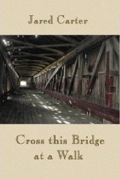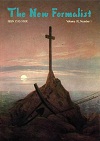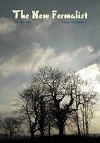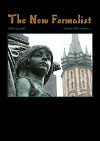A.E. Stallings began writing, doubtless, before her 20th birthday or thereabouts. I have no source to confirm this, but I can tell when a poet has gone to school with the great poets of the past, and when they began versifying. The earlier a poet starts reading and writing the better ear he or she will have. Stallings has a fine ear.
She began publishing early in small press journals such as Beloit Poetry Magazine, The Formalist, and Hellas, just to name a few. As far as I know she learned her craft alone, was mentored by no one, never workshopped or networked. Before she was 25 her poems had already appeared in Poetry, had been included in major anthologies, which were reserved, by and large, for establishment free verse poets. Her poems had made it through the slush piles for all the right reasons. There had been no phone calls from Dana Gioia pleading her case to the editor of Poetry (Christian Wiman hadn’t yet been appointed), no Murphyesque name dropping, no grandiose claims of greatness. She made it where no other formalist had been since Richard Wilbur, on merit alone.
In those days (the 1990s) I concluded that the reason for her literary success was her age, beauty, mental and spiritual health, and her WASP origins. The older WASP poets are as lecherous as anyone, I thought, and gladly promoted one of their own.
Some erring critics have claimed that she is a poetic descendant of Edna St. Vincent Millay and Dorothy Parker, and that her poems are almost as good as theirs. I beg to differ. She writes better verse than both of those gifted (albeit allegedly degenerate) woman ever penned. Stallings is a healthy woman, mentally and spiritually, and her poems reflect this health. She is, though, a woman, a very feminine one at that, despite a childhood that included tomboy fishing trips with her father.
I like manly poetry, the kind that W.B. Yeats, Roy Campbell and Dylan Thomas wrote, broad-chested, brooding and loud. Many female poets chatter to their pillows, repeat politically correct clichés and have a feminist cultural marxist axe to grind. (Granted, many male poets today do the same and grind like the most pathetic of catamites.) In their verses heterosexual white men are evil and patriarchal Western civilization must be destroyed inasmuch as it oppresses females, gays, the underclasses, and minorities. Although Stallings may hold those appalling views too, which I doubt, she never allows them to infiltrate her verses. She writes of her dead father, of her new son, of Athens, of arrowheads, of antiquity, and does so with great formal skill, precision and charm. Always a lady, she avoids conflict, politics, and religious disputes. She broods over no historical events, solves no great philosophical conundrums, and asks no significant metaphysical questions. That is, after all, the job of the historian, the philosopher, and the metaphysician. The poet’s job, first and foremost, is to entertain and this she does extraordinarily well.



